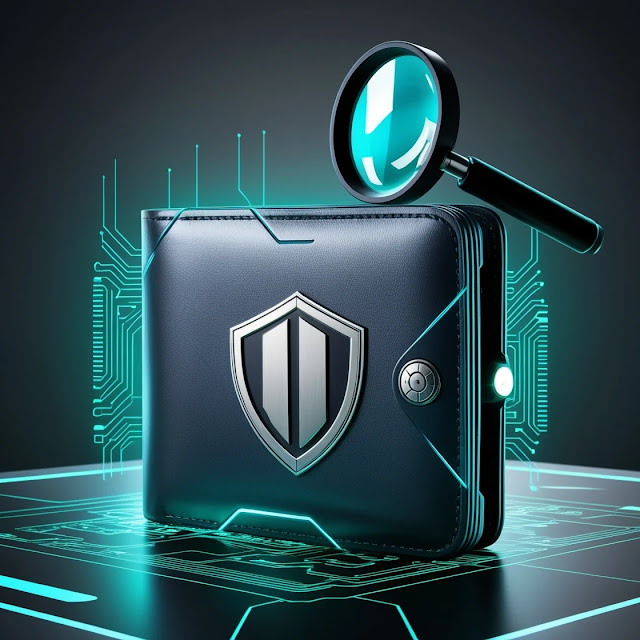Wallet Security and the Importance of Continuous Security Audits
In today's digital age, securing financial assets in digital wallets is more crucial than ever. As more people adopt cryptocurrency and digital payment methods, wallet security has become a top priority. Continuous security audits are essential to ensure wallet safety, helping to identify vulnerabilities and prevent breaches. This article will explore wallet security essentials, the importance of regular audits, and best practices for keeping your wallet safe.
 |
| Wallet Security and the Importance of Continuous Security Audits |
What is Wallet Security?
Wallet security refers to the methods and practices used to protect digital wallets from unauthorized access, data breaches, and other forms of cybercrime. Whether storing cryptocurrency or digital cash, secure wallet management is essential to protect against potential losses. Wallet security involves the use of strong passwords, two-factor authentication (2FA), encryption, and other security measures to guard against hackers and other threats.
The Role of Continuous Security Audits
Continuous security audits play a crucial role in maintaining wallet security by identifying potential vulnerabilities and ensuring that security measures are up-to-date. These audits systematically evaluate a wallet’s infrastructure, verifying its resilience against the latest security threats. With digital threats constantly evolving, routine audits help stay one step ahead, ensuring that users’ assets remain protected.
Common Threats to Digital Wallet Security
Understanding the types of threats digital wallets face is crucial for implementing effective security measures. Common threats include:
- Phishing Attacks: Phishers trick users into revealing their private keys or passwords.
- Malware: Malware can infect a device, compromising wallet security by stealing private keys or logging keystrokes.
- Social Engineering: Attackers manipulate users into divulging sensitive information.
- Weak Passwords: Simple passwords make wallets easier to breach.
Recognizing these threats and taking steps to address them is essential for protecting your digital wallet.
Best Practices for Wallet Security
Implementing best practices is fundamental to secure wallet management. Here are some key methods to enhance wallet security:
- Use Strong Passwords: Choose complex, unique passwords for each wallet.
- Enable Two-Factor Authentication (2FA): 2FA adds an additional layer of security.
- Store Private Keys Securely: Private keys should never be shared and should be stored in secure, offline locations.
- Regularly Update Software: Software updates often include important security patches.
- Limit Access: Restrict wallet access to trusted individuals and devices.
The Benefits of Regular Security Audits
Regular security audits provide multiple benefits, ensuring that your wallet security remains strong. Some of these benefits include:
- Early Vulnerability Detection: Audits reveal potential issues before they become threats.
- Improved Compliance: Regular audits help meet regulatory standards for digital asset security.
- Enhanced Trust: Audited wallets demonstrate higher reliability, fostering user confidence.
Security audits are a proactive approach to maintaining digital wallet security and avoiding potential losses.
Choosing a Reliable Audit Provider
Selecting a trustworthy security audit provider is essential. Look for providers with a solid reputation, industry certifications, and a proven track record in identifying and mitigating security risks. Reviews and recommendations from other users can provide valuable insights into the provider’s reliability and effectiveness.
Questions and Answers on Wallet Security
What are some signs that my wallet may be compromised?
Common indicators of a compromised wallet include unexpected login attempts, unauthorized transactions, and sudden changes in account information. If you notice these signs, secure your wallet immediately and contact support.
How often should I perform a security audit on my wallet?
It’s recommended to conduct security audits at least twice a year. However, high-frequency traders or those with large asset holdings may benefit from quarterly or monthly audits for added security.
Can I perform a security audit myself, or should I hire a professional?
While some aspects of a security audit can be done independently, professional audits provide a more comprehensive assessment. Professionals have specialized tools and expertise to identify vulnerabilities you might miss.
Are there specific wallets more prone to security risks?
Hot wallets (online wallets) are generally more susceptible to attacks than cold wallets (offline storage). For long-term asset storage, cold wallets are considered a safer option.
How can I protect my private keys effectively?
Store private keys in a secure, offline location, and never share them with others. Using a hardware wallet or secure storage solutions can enhance key protection.
Conclusion
In summary, wallet security is vital in today’s digital financial landscape. Implementing best practices, such as using strong passwords and enabling two-factor authentication, can go a long way in securing your assets. However, with evolving digital threats, relying solely on these measures is insufficient. Continuous security audits are essential for identifying vulnerabilities and strengthening defenses, ensuring the long-term security of digital wallets. By choosing a reliable audit provider and staying informed about potential threats, users can significantly reduce the risk of wallet compromise and safeguard their assets effectively.





